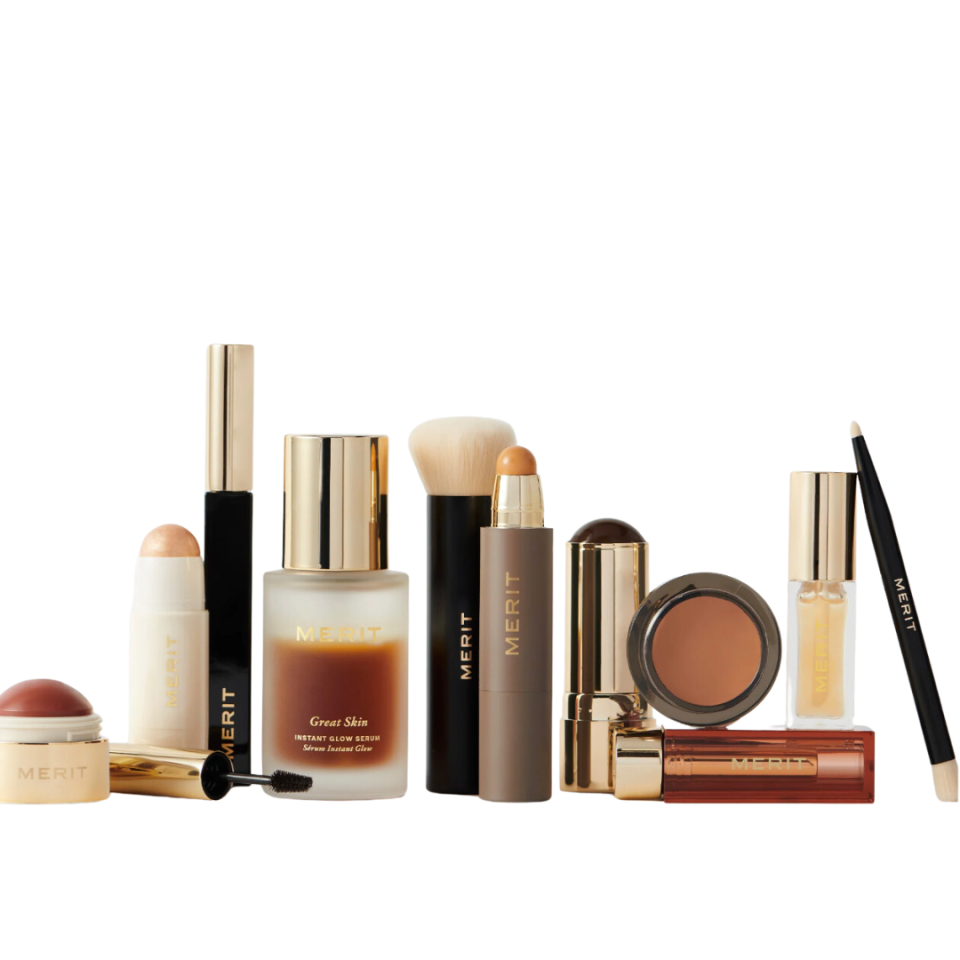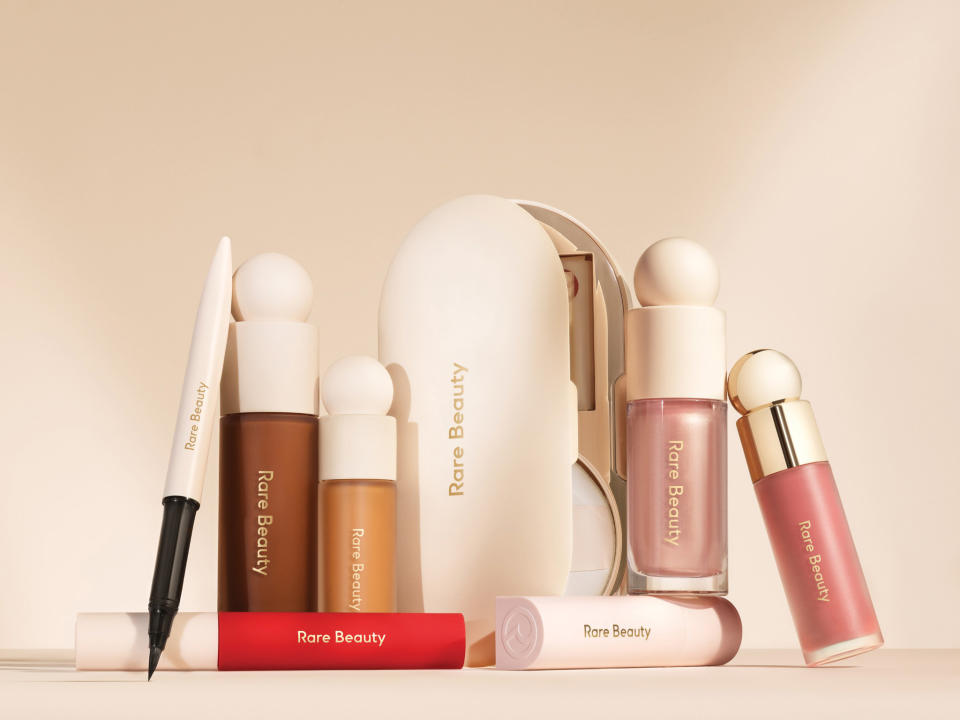Three Makeup Brands Are Exploring Deal Options

Industry speculation that makeup would be 2024’s hottest M&A target is quickly becoming a reality.
The category, now years into a post-pandemic rebound and still prestige beauty’s largest segment in the U.S., has seen a plethora of entrants — most of whom have grown both the overall pie and their slices of it — exploring exit options.
More from WWD
E.l.f. Cosmetics Partners With Liquid Death for Heavy Metal-inspired Makeup Collection
EXCLUSIVE: Jen Atkin, Mary Phillips and Justine Marjan Are Building a Talent Management Agency
Industry sources told WWD that Glossier, roughly a year after its Sephora debut, has hired Morgan Stanley to explore options, including an initial public offering. Sources also say they’re not alone — Merit Beauty has reportedly tapped Goldman Sachs as it looks at a potential sale.
Glossier, Merit and Morgan Stanley declined to comment. Goldman Sachs did not immediately respond to requests for comment.

Makeup brand Jane Iredale is also working with Jefferies, sources said. Jane Iredale declined to comment, and Jefferies did not respond to requests for comment by press time.
All this follows WWD reports that Selena Gomez’s Rare Beauty jointly hired Goldman Sachs and Financo Raymond James to explore its options, while Kosas led the pack by hiring North Point as it weighs a potential sale.
“This second wave of makeup brands, post-Charlotte Tilbury and Anastasia Beverly Hills, have grown into the size that a strategic buyer would be interested in,” said one source. “You don’t want to get too big for the strategics, either, and you want to show that there’s still tons of runway on the table. That’s why some of these more midsized brands are going out to market now.”
Like Glossier, Rare is understood to be weighing up an initial public offering as part of its exit strategy, given its size. The market is bubbling up again and last year Il Makiage owner Oddity enjoyed a successful IPO.
These are all brands of varied size, north of which are $100 million. Sources say net revenues for Merit topped that figure last year, while Glossier was on track to surpass $100 million in Sephora alone for its first year with the LVMH Moët Hennessy Louis Vuitton-owned retail giant. Industry sources estimate that Glossier’s overall sales are around $275 million.
Sources think that given how much money Glossier has raised, an IPO may be its only option. “It seems only the earlier investors in Glossier could really make money as opposed to the later ones,” one source said of a potential sale, making the case for a public offering.
“There are very few mono-brand companies that go public in beauty, Oddity being an exception, which has more of a tech company. That said, Glossier has a lot of tech investors on its cap table,” the source continued.
As for Rare Beauty, other sources pointed to potential hiccups with an IPO, including that it is a single-brand company with a single founder in Gomez and single retail partner.
Those aspects have yet to hamper its growth. Rare Beauty is at a sizable $350 million, while Kosas is said to hit $120 million in net sales.

One thing the entrants all have in common, though, is a younger core consumer. Merit, for example, skews toward Millennials; Rare Beauty has captivated both Gen Z and Gen Alpha.
“It’s an opportunity for strategics not only to widen their portfolios, but to age them down and to acquire capabilities, and there’s some incredible brands out there that are doing all of those things,” Kelly McPhilliamy, managing director of Harris Williams, told WWD in February.
Glossier, Merit, Rare Beauty and Kosas are all Sephora brands, which creates “an interesting dynamic,” said a source, who added that the brands’ commonalities shouldn’t necessarily impact valuations. “There’s a large percentage of all the deals over the past few years that are Sephora brands. It’s not uncommon for that be an attribute of some of these prestige brands.”
Growth in makeup outpaced every other category in prestige beauty, according to 2023 data from Circana. Cosmetics grew 15 percent, while skin care — the M&A darling of years past, culminating in the acquisitions of Deciem and Paula’s Choice, among others — grew 14 percent.
Best of WWD

